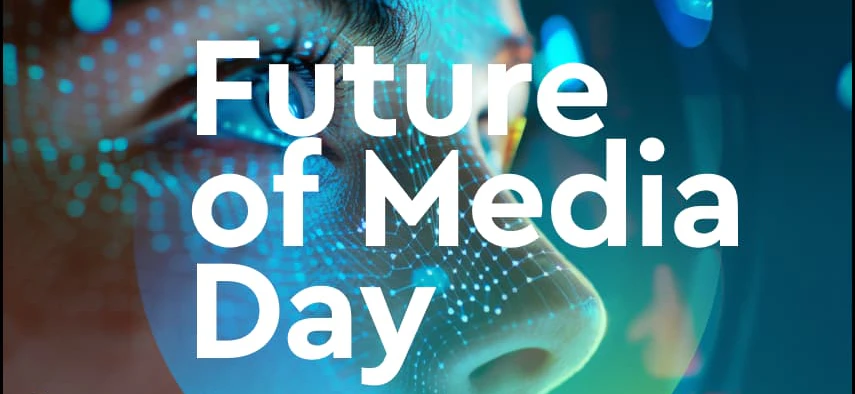Insights25th Jun 2025
Cannes Lions 2025: Charting the Future of Creativity with AI and Intelligence
WPP Media’s first Cannes Lions has come to a close, and what a year. We triumphed as the most awarded media network with a brilliant 77 Lions, including nine Grand Prix and Titanium trophies, and a Young Lions Gold win. But beyond the awards, Cannes Lions is about sharing ideas, insight and innovation.
We took a deep dive into the future of media, with AI at the forefront, exploring its potential to fundamentally reshape how we work. Throughout the week our experts tackled how to use AI to unify data, support our teams and build iconic brands.
Here are just a few of the highlights from a week of creativity.
Magical AI: How We Can Work Better with Machines
Artificial Intelligence will transform the way we work, but there are common misconceptions about how it can be applied. For example, people often believe AI automatically saves time; but implementing AI at scale requires substantial investment in data preparation and model refinement, as well as advanced training and roll-out plans for staff. The focus should always be on adding value rather than cutting costs, but that still doesn’t make it easy. For 10 successful initiatives, you try 100 which don’t really work out. Embracing that failure and having the confidence to tackle bold initiatives is vital for success.
AI functions most effectively as a "teammate," not a standalone tool. It can be used to brainstorm, to help us refine ideas and spark inspiration. It’s a partner that can make us faster, more creative and more fulfilled. People who use AI in their personal lives are more likely to embrace it at work, and to maximize its potential companies need to invest in internal collaboration and implement a strategic partnership between humans and AI.
Intelligence Beyond ID
The era of identity-only is over. We operate in a complex, multi-dimensional industry, with multiple data sources and signals, which originate from myriad platforms. Trying to tie these data signals to one static ID is ‘old-fashioned thinking’ – not to mention a risk for data security and privacy. To find their next growth opportunity, brands should look to AI-based technology like WPP’s Open Intelligence. This AI-powered data solution can draw inferences across diverse datasets and signals, stitching information together without transferring original data. For example, a brief like "find Gen Z sustainable fashion enthusiasts who live near stores where we have headroom in Northern Germany" might feel impossible, as it doesn’t exist in any one platform or data set. But with AI it can be addressed in weeks, not months, by using a variety of data sets to train a Large Marketing Model. The time to start is now, AI is here and the longer you delay the faster you’ll fall behind your competition. Here are some key things to consider:
Is this approach building a rounded picture of growth audiences, or just creating another silo?
Think bigger than just replacing existing systems; consider what you truly need and how AI can build it.
Focus on the business case, not just the use case – how will this drive growth?
Learn more about Open Intelligence
Icon Building: Making Your Brand Famous in the Age of AI
What makes a brand icon? Our new research shows it’s a complex blend of consistent recognition, distinctiveness, emotional connection and cultural impact. Just one in 100 brands will achieve iconic status, and this status is x3.5 harder to maintain than it was three years ago.
Brands fail to achieve iconicity for a variety of reasons: they don't connect deeply with their purpose, sidestep societal responsibility, or lack distinctiveness vs competitors, culminating in a struggle to stand out. AI can transform how brands connect with consumers, from media buying to content creation, but the path to building iconic brands in the AI age requires a strategic blend of 'math and magic'. It means leveraging AI for efficiency and insights, while simultaneously dedicating more time and resource to crafting magical campaigns, fostering emotional connections and building cultural impact. Our experts cautioned against giving AI too much autonomy – guardrails are essential to ensure AI aligns with strategic brand objectives and prevent 'average outputs' (a real risk when everyone has access to the same technology). The future of content might see a bifurcation: polished, Hollywood-quality brand narratives alongside AI-generated content for tactical, lower-funnel activities. Brands that are brave enough to give up some control and invite participation will be more connected and distinctive.
AI should liberate marketers from rote tasks, allowing them to focus on the strategic, creative and human aspects of brand building. By embracing AI as a powerful partner, not a replacement for human talent, brands can navigate this new frontier and achieve lasting iconicity.
Thanks to our panel participants:
MAGICAL AI: HOW WE CAN WORK BETTER WITH MACHINES
Elav Horwitz – Executive Vice President, Global Strategic Partnerships & Solutions, WPP
Pratik Thakar – Global Vice President & Head of Generative AI, The Coca-Cola Company
Catherine Lautier – VP Global Head of Media and Integrated Brand Communication, Danone
INTELLIGENCE BEYOND ID
Stuart Bowden – Global CSO, Wavemaker
Lauren Wetzel – CEO, InfoSum
Oliver Parker – Vice President Global Generative AI GTM, Google Cloud
Alex Steer – Global Chief Data Officer, Choreograph
ICON BUILDING: MAKING YOUR BRAND FAMOUS IN THE AGE OF AI
Adam Gerhart – Global Chief Client Officer, WPP Media
Mathias Chaillou – Chief Media Officer, L'Oréal
Janet Levine – Global Head of Invention, Mindshare
Ulrich Klenke – Chief Brand Officer, Deutsche Telekom
